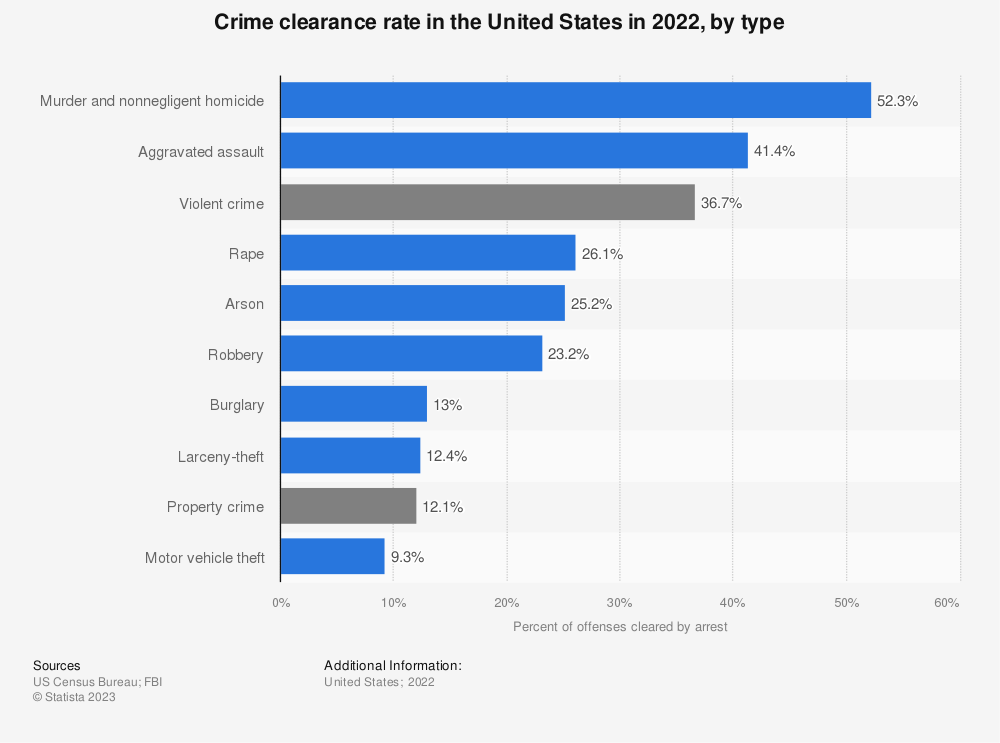AN AWARD-WINNING CRIME PREVENTION PROGRAM
One of the most important steps toward ensuring your own safety is having a personal safety strategy in place before you need it. NRA’s Refuse To Be A Victim® program teaches the tips and techniques you need to be alerted to dangerous situations and to avoid criminal confrontation.
Seminars are held across the nation and are open to individuals of all ages. Today, thousands of federal, state and local law enforcement officials and civilians from across the nation utilize this popular program in their crime prevention and community policing initiatives to help protect their communities.
Corporations, educational institutions, and community centers have also adopted the program. All told, more than 120,000 people have benefited from these seminars.



Violent Crimes
Total numbers of crimes in the
U.S. in 2019 is 1.2 million
one every 25 seconds.
Violent crime rate is
(per 100,000 inhabitants)
366.7
Violent Crimes
The FBI reported an estimated 7 million property crimes in 2019.
Assault crimes
Assault crimes remains a major reported crime with 820,000 occurring in 2019.
From Awareness To Avoidance
SEMINAR TOPICS
- Trust Your Instincts
- Always Be Aware of Your Surroundings
- Take a Refuse To Be A Victim Seminar
- Automobile Security
- Technological Security
- Personal Protection Devices
BASIC PRINCIPLES OF CRIME PREVENTION
SEMINAR TOPICS
- Trust Your Instincts
- Always Be Aware of Your Surroundings
- Take a Refuse To Be A Victim Seminar
- Automobile Security
- Technological Security
- Personal Protection Devices











